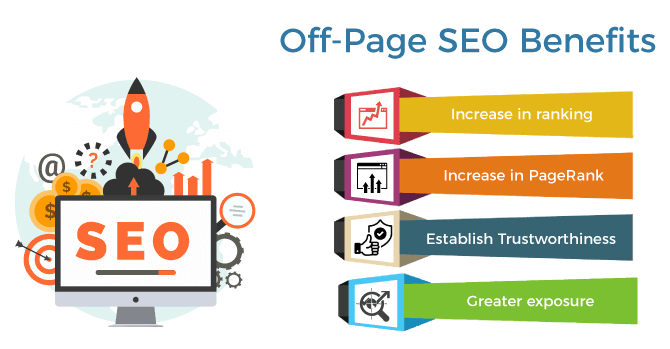
Unlocking Business Success: The Power...
January 8, 2024


Writen by Laksh Yadav
comments 0

In the ever-evolving landscape of digital marketing, mastering Search Engine Optimization (SEO) is crucial for any website aiming to achieve online success. With giants like Google and Facebook dominating the digital realm, optimizing your website has never been more critical. In this comprehensive guide, we’ll explore the ins and outs of SEO, focusing on On-Page SEO, Off-Page SEO, Meta Tags, and leveraging Google Analytics to boost your website’s rankings and organic traffic.

On-Page SEO plays a pivotal role in optimizing individual web pages to rank higher and attract relevant organic traffic. Here’s how you can enhance your website’s performance using On-Page SEO techniques:
Conduct in-depth keyword research using tools like Google Keyword Planner, to understand user intent and relevance for your niche. Strategically incorporate target keywords in your content, titles, headings, and meta descriptions.
Create high-quality, engaging, and informative content that addresses your audience’s needs. Include your target keywords naturally within the content while maintaining readability and coherence.
Craft compelling and keyword-rich titles and headings that accurately reflect the content’s essence. These elements carry significant weight in search engine rankings.
Write concise and compelling meta descriptions that encourage users to click through to your website. While not a direct ranking factor, well-crafted meta descriptions can improve your click-through rates.
Keep your URL structure clean, concise, and descriptive. Avoid using random strings of characters and include relevant keywords when possible.
Off-Page SEO involves building a strong online presence and reputation through external factors. Here are essential Off-Page SEO strategies to boost your website’s authority and rankings:

Acquire high-quality backlinks from authoritative websites in your niche. Guest posting, influencer outreach, and content promotion can be effective ways to secure valuable backlinks.
Leverage platforms like Facebook to engage with your audience, share valuable content, and drive traffic to your website. Social signals are becoming increasingly important for SEO.
Encourage satisfied customers to leave positive reviews on platforms like Google My Business and other review sites. Consistent NAP (Name, Address, Phone number) information across the web boosts your local SEO efforts.

Meta tags provide valuable information to search engines and visitors about your web pages. Two crucial meta tags to focus on are:
The title tag is a concise HTML element that appears as the clickable headline on search engine result pages (SERPs). Craft unique, keyword-optimized title tags for each page to improve click-through rates and SEO rankings.
The meta description is a short snippet that summarizes the page’s content. Although not a direct ranking factor, an enticing meta description can improve your CTR and indirectly impact rankings.
Google Analytics is a powerful tool to measure and analyze your website’s performance. Here’s how to utilize its features to optimize your SEO strategy:
Install Google Analytics on your website to track important metrics like organic traffic, user behavior, and conversion rates.
Use Google Analytics to identify the sources of your traffic. Understanding which channels drive the most visitors can help prioritize your marketing efforts.
Dive into user behavior data to assess how visitors interact with your site. Pay attention to bounce rates, time on page, and conversion funnels to identify areas for improvement.
Utilize Google Analytics’ search query data to identify the keywords driving traffic to your website. Focus on optimizing pages for high-performing keywords to boost organic rankings.
In 2023, SEO remains the backbone of any successful online business. By implementing the strategies outlined in this SEO-friendly blog, you’ll be well-equipped to boost your website’s rankings, attract organic traffic, and establish a strong online presence. Remember that SEO is an ongoing process, and staying updated with industry trends and algorithm changes will be key to maintaining your website’s competitive edge in the digital landscape. Happy optimizing!
Tags : Backlinks, Google Analytics, On-Page SEO, SEO


Leave A Comment